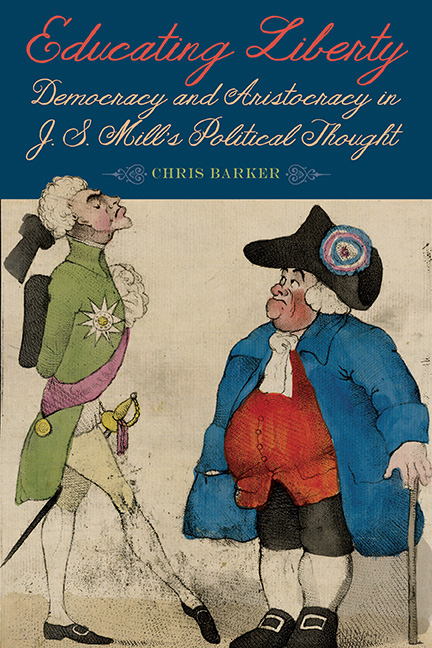Summary
Earlier chapters of this book explain Mill's theory of education, which he believes is a lifelong endeavor that begins at home and with the cultivating effects of small-group association. These small-scale, more or less intimate associations prepare individuals for a life of freedom and equality rather than passivity and dependence. As chapters 3 and 4 argued, Mill is particularly concerned with avoiding entrenching existing social hierarchies as well as creating new hierarchies of knowledge and expertise. This chapter deals with the religious humanitarianism of the Three Essays on Religion and explains how Mill's theory of education applies not to small-scale cooperation or political participation but to the species as a whole.
Readers of Utilitarianism have long debated Mill's argument that Utilitarianism can and should be taught like a religion. Some have concluded that Mill's liberalism is an antidote to the self-created problem of oppressive Utilitarianism. Others argue that Mill is a thorough secularist whose “religion” does not even qualify as a civil religion because it is so transparently nontheistic. Some of Mill's Victorian readers thought that he was an atheistic and utopian thinker, whereas others thought that his religious writings supported emotional theism. In fact, Mill's religion of humanity gained few positive notices, although the great diversity in interpreting Mill is heartening. Perhaps underneath the competing criticisms we can find something complicated and worthy of interpretation.
When they are interpreted properly, Mill's writings on religion reveal his persistent respect for existing traditions of religious belief. Most important, these writings aim at strengthening the educational resources available to liberalism. One friendly critic of Mill argues that the “pervasive weakness” of Mill's mature liberalism lies in Mill's failure to anticipate that “widespread manipulation of opinion in democracies might undermine and possibly negate the educative role elites … had necessarily to play in reforming society.” This is the problem that Mill's writings on religion address.
Mill's adopted daughter, Helen Taylor, published the Three Essays on Religion after Mill's death. “Nature,” “The Utility of Religion,” and “Theism” were at least partially edited by Mill before his death. “Nature” was finished in February 1854. “Utility of Religion” was completed in early April 1854. According to Helen Taylor, Mill wrote “Theism” between 1868 and 1870.
- Type
- Chapter
- Information
- Educating LibertyDemocracy and Aristocracy in J. S. Mill's Political Thought, pp. 155 - 192Publisher: Boydell & BrewerPrint publication year: 2018



